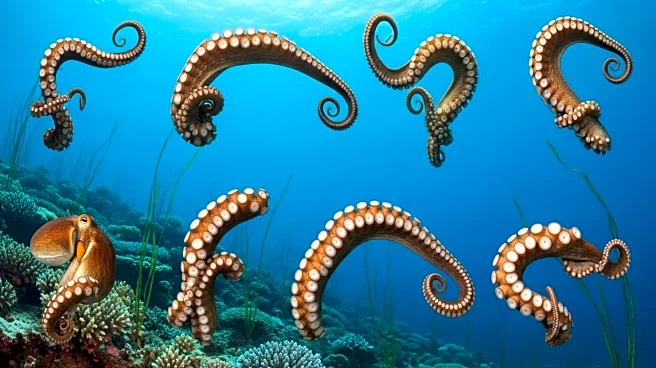What's Happening?
Researchers from the Marine Biological Laboratory in Woods Hole and Florida Atlantic University have discovered that octopuses exhibit preferences for using certain arms for specific tasks in the wild. By analyzing video footage, scientists found that octopuses tend to use their front arms for exploration and their back arms for movement. This study provides new insights into the natural behavior of octopuses, which had previously been observed primarily in laboratory settings. The findings contribute to a deeper understanding of cephalopod behavior and have potential applications in the development of soft robotics.
Why It's Important?
The study's findings are significant for the field of robotics, particularly in the development of soft robotics, which mimic the flexible and adaptive movements of octopus arms. Such technology could have wide-ranging applications, including in medical devices and ocean exploration. Understanding octopus arm usage in their natural habitat also enhances biological knowledge, which can inform conservation efforts and the study of other marine species. The research bridges a gap between laboratory observations and real-world behavior, offering a more comprehensive view of octopus biology.
What's Next?
Further research is likely to explore the specific mechanisms behind octopus arm preferences and how these can be replicated in robotic systems. Scientists may also investigate the potential for using soft robotics in various industries, assessing their effectiveness and efficiency compared to traditional robotic technologies. Collaboration between biologists and engineers could lead to innovative solutions for complex problems, leveraging the unique capabilities of soft robotics inspired by octopus behavior.









